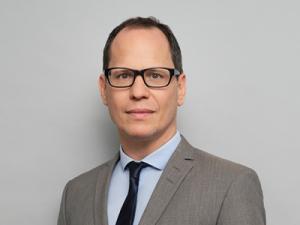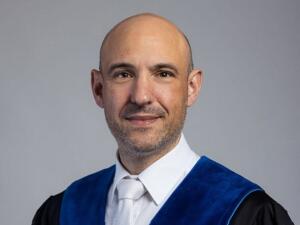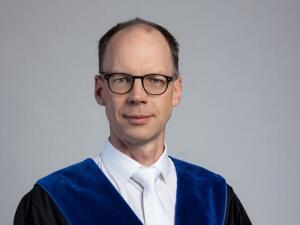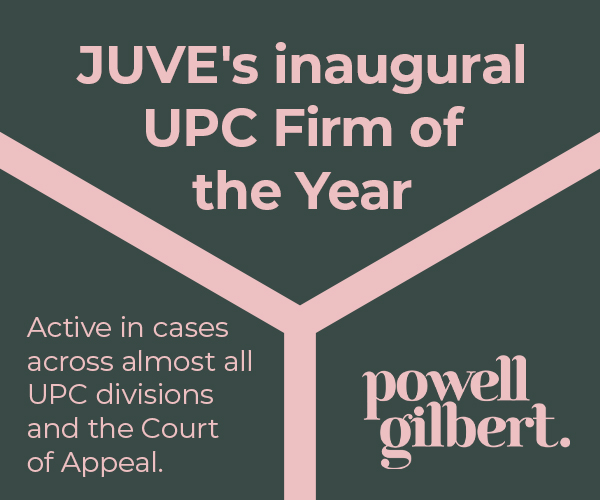Bernhard Frohwitter’s foray into supercomputers and suit against Nvidia
Years ago, Bernhard Frohwitter shook up the mobile communications industry with the NPE IPCom. Now the lawyer and company has invested in supercomputers. He recently sued Nvidia at the UPC over this technology, coming face to face with his former law firm Bardehle Pagenberg.
6 December 2024 by Mathieu Klos
To find a former connection between the current opponents Bernhard Frohwitter and Bardehle Pagenberg one has to delve far into the history of the latter. In 1982, the well-known Munich law firm was known as Bardehle Pagenberg Dost Altenburg Frohwitter. Frohwitter had joined the firm a year earlier. In 1998, the lawyer left again to launch his own firm.
Now Frohwitter and his former law firm come face to face once again — this time at the UPC. Frohwitter and his company ParTec have sued the chip giant Nvidia for infringement of two patents. The lawsuit has been public knowledge for some time and was recently published in the UPC’s CMS.
This is not the first time Bardehle Pagenberg has represented the chip giant in a patent dispute in Europe. A Bardehle team previously represented Nvidia in connected cars disputes before German courts. Patent attorney Christof Karl and lawyer Johannes Heselberger are now leading the defence against ParTec’s lawsuit.
- Johannes Heselberger
- Bernhard Frohwitter
- Christof Karl
The latter joined Bardehle Pagenberg at the age of 27, the year Bernhard Frohwitter left to go his own way. While Heselberger focused entirely on his career as a lawyer, Frohwitter always led a dual existence as a lawyer and entrepreneur.
The man behind IPCom
For example, he bought mobile phone patents from Bosch, which he enforced with the non-practising entity IPCom against various mobile phone providers. The dispute between IPCom and Nokia, in which the NPE allegedly demanded €12 billion and in which Frohwitter still acted as lawyer and CEO of IPCom, is legendary. He later restricted himself entirely to the role of IPCom manager. Under his leadership, Frohwitter states in his CV, IPCom generated €2 billion in licensing revenues.
Frohwitter increasingly left the legal work to lawyers and patent attorneys from his own and other law firms. In 2020 he retired from the IPCom management. At that time, he had long since set up ParTec, which he and others founded as a spin-off from the university of Karlsruhe in 1999.
Lawyer Roman Sedlmaier and patent attorney Jan Giegerich were already present at Frohwitter’s side during his time at IPCom. They later founded their own law firm IPCGS. Over the years, IPCom has also relied on teams from other law firms such as Hengeler Mueller, Quinn Emanuel, Krieger Mes, and df-mp.
IPCGS and lawyer Axel Verhauwen from Krieger Mes, as well as patent attorney David Molnia from df-mp, are now teaming up again to represent PartTec. According to Frohwitter, the law firms work exclusively on a contingency basis.
- Roman Sedlmaier
- Axel Verhauwen
- David Molnia
ParTec has sued Nvidia at the UPC for infringement of EP 3 743 812 and EP 2 628 080. EP 812 protects an “application runtime determined dynamic allocation of heterogeneous compute resources”. EP 080 protects “a computer cluster arrangement for processing a computation task and method for operation thereof”.
Supercomputing technology
PartTec claims both patents are central to applications in the fields of high-performance computing and artificial intelligence. In essence, they relate to supercomputers, which will be particularly important in future AI applications.
According to ParTec, the company specialises in the development and production of AI-capable supercomputers based on its modular high-performance computing systems and quantum computers, as well as the associated system software called ParaStation Modulo and QBridge.
The focus is on the concept of dynamic modular system architecture (dMSA). This is where graphics processing units (GPU) are assigned to the central processor, depending on the workload requirements, in order to accelerate the computing power for, for example, highly complex weather simulations.
From Munich to the Rhineland
ParTec is currently building such a supercomputer, called Jupiter, at the Jülich Research Centre in North Rhine-Westphalia. It is expected to perform more than a trillion computing operations per second.
Jülich is a small German town between Aachen and Cologne, but the location was a deliberate choice. This is where Thomas Lippert, formerly a physics professor at the University of Wuppertal, invented the dMSA. Lippert is now head of Jülich Supercomputing Centre and director at the Institute for Advanced Simulation. Lippert applied for patents 14 years ago and is listed as the inventor on many patents that now belong to ParTec. Frohwitter is co-inventor of EP 812 together with Lippert.
Frohwitter’s law firm filed most of the patents for ParTec. Patent attorney Mathias Himmelsbach was responsible for the two patents-in-suit. Frohwitter is also CEO of ParTec. Last year, the company ventured onto the Frankfurt Stock Exchange. According to the latest investor report, the company is expected to achieve a turnover of €76 million this year. In the previous year, it was almost 20 million more.
Nvidia faces Europe-wide injunction
With the current lawsuit, PartTec and its exclusive licence dealer BF exaQC AG are demanding that Nvidia refrain from distributing essential products from its GPU product portfolio in UPC countries. ParTec is also demanding information about the sales negotiations that have taken place to date as well as compensation for damages (case ID: ACT_58616/2024). According to press reports, experts estimate the value of ParTec’s claim at 3 billion euros.
According to ParTec, the Munich-based company and Nvidia held talks in 2019 about a possible collaboration on the development of GPUs for supercomputers. However, there was no concrete implementation. Nevertheless, the two companies did collaborate on the construction of supercomputers for which Nvidia supplied GPUs. Indeed, Jülich Research Centre, ParTec and Nvidia announced their collaboration on the construction of the Jülich supercomputer in 2023. It is not known whether this will continue after ParTec’s lawsuit.
- András Kupecz
- Ulrike Voß
- Daniel Voß
The experienced second panel of the Munich local division will now decide on the dispute. Ulrike Voß is the presiding judge. Daniel Voß and András Kupecz complete the panel.
Parallel US claim against Microsoft
In June 2024, ParTec also filed a patent infringement suit against Microsoft Corporation in the US. At the heart of this legal dispute is also the infringement of ParTec’s dMSA architecture. ParTec is basing the lawsuit on the same patents as in the Nvidia case.
In an interview with the German daily newspaper Handelsblatt, Frohwitter accused Microsoft of infringing ParTec’s intellectual property with its supercomputers for AI as part of the Azure cloud computing platform.
Images of judges: ©UPC










